- Home
- Stephen Hunter
Dirty White Boys Page 4
Dirty White Boys Read online
Page 4
Across the hall, he looked in on the younger boy, Jeff. Jeff was the smaller at fifteen but the tougher. He had a pug face and an athlete’s wiry, muscley frame. The room stank ever so slightly of stale sweat socks, moldy jocks, ten pairs of sneakers. He was the jock wannabe, no genius, not a reader, but on any kind of field a hard and earnest plugger who yearned to do well and almost never did. There was something tragic in Jeff’s wanting and continual air of disappointment in himself. Bud felt a wave of love and melancholy wash across him, so intense that he felt he could bend over and kiss the young man on the cheek. Jeff seemed to need him so.
I’m going to leave this young boy? he asked himself, feeling the weight come onto his shoulders. But leaving was being discussed. It was a possibility up ahead on the road. Scared the hell out of him. Am I really getting ready to pull out?
Well, maybe I am. Maybe they’ll be all right.
“Daddy?” Jeff had stirred, seeing his father.
“Yes, Jeff, what is it?”
“What’s going on?”
“Oh, they need me. Nothing much.”
“You don’t have your vest on. I can tell.”
“It’s nothing,” he said. “Don’t you worry a bit. You’re just like your mother. Get on back to sleep now.”
Bud put his family behind him and walked downstairs to the end of the hall to a closet. He opened it to face his gun vault. Quickly, he turned the familiar combination.
His heavy patent-leather belt hung on the pegboard inside the door; he peeled it off, ran the belt around his waist, and pulled it tight, third hole. A belt was important to a policeman; it carried so much: cuffs, can of mace, a baton if he was working crowd control, a sap as some of the boys carried, a radio jack, a speedloader pouch, and the gun, of course.
Of course the gun. A four-inch Smith & Wesson M66 .357 Magnum. He took his off the shelf and gave it a quick wipedown; its stainless steel ugliness gleamed in the low light, but the damned thing felt so good in the hand. It fired six murderous little Federal 125-grain hollowpoint bullets, with a one-shot stop rating of 93 percent. Bud went to the range twice a week; he was a very good shot.
He opened the cylinder and quickly dropped in six Federals from the open box; he had two speedloaders, each charged with six cartridges for quick refills. Unlike many state officers, Bud laboriously practiced with the speed-loaders, and could get his six empties out and have six new shells deposited in the cylinder in less than two seconds. He’d never had to do so, just as he’d never shot a living man, but it was better to be able to do it fast and not need it than to need it and not be able to do it. He secured the pistol in his holster, snapping the thumb snap. Then he reached into the gun safe and removed a tiny Smith & Wesson 640, a two-incher, flicked the cylinder open to assure himself it carried five +P .38-Special hollowtips, locked the cylinder, and slipped it into his ankle holster, left inside ankle, again securing it with the strap.
He locked the safe up tight and pulled his Smokey off its top. The dark green flatbrimmed hat was perched just so atop his head, its brim just edging off the top of his vision, as it was supposed to. Maybe that’s where it started for him, all those years back. Goddamn, he still thought it was the best-looking hat he’d ever seen; it was the only hat he’d ever wear. He wanted to be buried in it, or at least with it.
He stepped out of the house and went to the cruiser parked in the driveway, a gleaming Chevy Caprice, in the black-and-white tones of the state. Firing up the engine, he picked up the mike and pressed the send button.
“Ah, Dispatch, this is six-oh-five, I’m ten-fifty-one to Officer two-eleven.”
“Got you, six-oh-five,” said the woman’s voice, the night duty dispatcher. “Advise you switch to Police Intercity Net for updates as they come through.”
“Affirmative, Dispatch. Any news?”
“Big zero, so far.”
“Okay, Dispatch, off I go.”
He switched to the intercity net, 155.670 MHz, eased the big car out of the driveway, and headed to Ted and Holly Pepper’s.
The Pepper trailer, alone on its grim little street, was lit up like a turnpike gas station. Ted, fully uniformed, stood outside with a rifle case in one hand. He was a tall, good-looking youngster, perhaps too handsome; if there was weakness to his character it was that as a young man things had been given to him too easily, without his ever quite acquiring the lessons of humility and hard-ass work. If you’re a blue-eyed boy with a button nose, things just show up on your plate. But he was all right. Ted just didn’t have the gift—that special instinct for human deviance, that cunning about motive, that twitch for the truth under the lie, and finally, the will to do the job flat out—that marked a great cop. But there weren’t too many great cops left, and Bud knew he himself fell short in a bunch of areas, too. He had only this on Ted: He’d been around a bit more.
As Bud pulled in, the door opened, and Holly came out in a housecoat with two sealed 7-Eleven plastic cups that presumably held hot coffee. Her freckles stood out now, without makeup; her straw-colored, almost reddish mass of hair looked like she’d been electrified, but, dammit, that was Holly, she was a cute one.
Ted was in a surly mood, Bud could tell, and Holly kept her distance.
“Hi, Bud,” she chirped. “You and Ted off on another excellent adventure?”
“Holly, for Chrissakes,” Ted said. “Howdy, Bud.”
“Ted, you locked and loaded?”
“Yes sir, and I got three mags with the sixty-nine-grain hollowpoints. Eighteen in each one, as per.”
“Good man. Let’s get her in the trunk and get on the road. Morning, Holly.”
“Oh, don’t notice me or anything there, Mr. Sergeant Bud Pewtie.”
He laughed. Holly was a flirty thing.
“I made you boys some coffee. I hope it helps.”
“Anything helps,” said Bud, opening the trunk. Ted put the rifle case in next to Bud’s own rifle case, where a Mossberg 12-gauge pump gun with an extended magazine was concealed.
“You boys could start yourself a war,” said Holly.
“Ain’t gonna be no shooting,” said Bud. “These trashy boys just want to stretch their legs before they go back. It’s just a little vacation.”
“Way I hear, they already killed three people,” Holly said.
“Okay, so, they’re a little testy,” said Bud. But then he turned to Ted.
“Ted, I want you to go back and get your vest on. This is a vest day if ever there was one.”
“Bud, you know I hate the goddamn vest. You ain’t wearing one.”
“No, I ain’t. That’s because I figure if there’s any shooting, you going to be a hero while I sit in the goddamn back seat and pray. So I don’t need no vest. You do, young trooper. You don’t want to widow this beautiful young woman, do you?”
“Ah, Bud—”
“Now, Ted, don’t make me pull hard rank in front of your wife. You just go on and do it. And don’t think you can shame me by calling me a hypocrite, because I already know I am one and goddamn it, son, I am proud of it!”
Like a chastised child, Ted went sullenly into the trailer from where, presently, the sound of things being tossed and doors being slammed arrived.
“It’s his day in the barrel, I guess,” Bud said.
“He’ll be fine, once he gets the coffee in him. Bud, how are you?”
“Oh, Holly, you know.”
He and Holly met at least twice and sometimes, depending on hunger and possibility, five or six times a week at various sites around the motel-rich greater Lawton area and made love with a desperation and a purity that Bud could never remember having felt in his life before. He hadn’t made love to Jen in over two years. He could hardly remember making love to Jen. But he could never forget making love to Holly.
And what was going to happen next? Hell if he knew. It had the sense of a high speed chase to it: going faster and faster, and something bad was bound to come of it, but once you start, in some terrible way
you have to finish.
“You said you’d work it out and I think you will. You’ll be a man. Somebody has to be around here.”
“He is upset about something, isn’t he? Could he know—”
“Bud, that boy hasn’t paid no attention to me in a year. If I turned green, he wouldn’t notice. So no, Bud, he don’t know a thing.”
“Okay. I don’t want him getting hurt. It’s important we tell him when we tell Jen. So nobody gets hurt any more than necessary. We’ll work this out. I promise. I swear.”
“You never want anybody getting hurt, do you, Bud? That’s what I like so very much about you. But you should be wearing your vest.”
“Well, Ted’s right. I’m too old to itch that much all day, though you’re the third person who’s told me to wear it in the past twenty minutes.”
“Bud, you should. You really should.”
“Nobody’s shooting this old boy, that I promise you.”
“Bud, I love you,” she suddenly said, as if she had to get it in quick. Then Ted, looking stiff with the seven pounds of Kevlar-reinforced fiberglass that now girdled his torso under his uniform shirt, came back out.
“Okay,” said Bud, “time to get humming.”
He shot Holly a secret look as Ted climbed into the car, then climbed in himself, backed out of the driveway, and sped out of the trailer park, heading crosstown to pick up Gore on the way to the 44.
Ted was silent.
“Well,” Bud finally said, “looks like we got a hard couple of days coming up. Nobody goes home on these jobs till it’s over. I remember back in 1978, there was this con who—”
But he glanced over and saw that Ted had settled back involuntarily and begun to breathe the heavy breath of sleep.
Middle of the night! thought Bud, and put the pedal to the metal, goosing the 350-cube engine, shooting through the deserted city as the sun just began to edge into the eastern sky.
It was full dawn when Bud pulled into the Chickasha highway maintenance barracks forty miles up the 44 toward Oklahoma City from Lawton, and Ted had slept the whole way. It was no big deal; Bud would have just talked to hear himself talk. If it made Ted sharper later on, so be it.
He entered the lot, not at all surprised to see cruisers not only from his own outfit but half a dozen others: the county sheriff’s offices, the Lawton and Chickasha municipal police, MPs from the Fort Sill reservation whose vastness abutted Lawton, as well as a couple of black sedans that were the trademark of the OSBI, the Oklahoma State Bureau of Investigation, the state’s own down-home FBI.
Oh, Christ, Bud thought: Osbies. Always think they know just that much more. Somehow always a little bit better protected than us poor old Patrol Smokies.
“Okay, bub,” Bud announced. “Let’s go git the particulars.”
“Huh! Oh, Christ, sorry, Bud, didn’t get much sleep last night. That goddamned wife of mine kept me up like you wouldn’t believe. Hard to believe a scrawny girl like that needs it twice a night.”
“Oh, to be that goddamned young again,” said Bud, completing the circle of the lie. Ted had stopped sleeping with his wife thirteen months ago, for no known reason at all—just stopped; Bud had started sleeping with Ted’s wife two months ago, and he knew the reason.
They got out and headed in, finding the place hopping, as was to be expected. He saw a lieutenant from Troop M over in Altus talking to two heavy-lidded types in ill-fitting suits who had to be OSBI. The two men in suits had Remington 700s with scopes hanging over their shoulders. In fact, looking about at the law enforcement types milling in the corridor, Bud saw that nearly everyone packed extra heat.
“Get yourself a cup of coffee,” the lieutenant said to him. “We’re waiting on goddamn C.D. for a briefing.”
“I thought that old coot was dead,” said Bud, acknowledging the mention of the legendary lawman.
“C.D. ain’t ever going to die,” said the lieutenant. “He’s too pickled in bourbon to pass on.”
He and Ted found coffee and a big tub of Dunkin’ Donuts, and Bud passed on the pastry while Ted took a sugary one. Suddenly Bud noticed guys streaming by them into the duty room as if everyone just knew that it was somehow time to get the word. Bud filed in, too, and the place that was sparsely filled when a twelve-man rotation got its shift briefing was now chockablock with cops.
A state officer made a few introductory remarks, but Bud, like all of them, paid no attention: they were eyeballing the legendary old Lt. C. D. Henderson, sitting there in a string tie and Tony Lama boots, and a definitely nonregulation Colt automatic in some kind of ancient, blackened, multistrapped and-buckled shoulder rig under his suit coat.
C.D. was the most famous detective in the state of Oklahoma and a hardcore police gunfighter who went back to great days when the Oklahoma City police pistol team sent its best men into the FBI to handle all violent duties. He himself, it was said, had been trained in the art of close-in shooting by the legendary D. A. “Jelly” Bryce.
But he looked so old. Rumor had it that he was a secret lush and would have been long since retired off the force if he didn’t have photographs of well-known politicians with prostitutes or something.
“Well, my compliments to y’all, can’t tell you how damned impressed I am with how fast you boys got here and how many of you there are,” C.D. said as he took over. His face was a prune left in the sun an extra week and the suit, khaki with cowboy piping, seemed to have been originally bought for a much larger man in the unenthusiastic way it hung off his scrawny geezer’s frame.
“Anyway, the goddamned Department of Correction dumped a bad one on us, and here’s the latest I have, and I just got off the phone with Oklahoma City. Pass the bulletins out, please.”
A couple of lesser lights walked among the men, handing out three-page sheets.
“At about eighteen hundred hours last night, that is, thirteen hours ago, a bad old boy named Lamar Pye led his cousin Odell and a poor newboy stiff named Richard Peed out of McAlester State Penitentiary. The first bad news is, it was only discovered at ten P.M., when they did a headcount, learned that the three boys were gone, and began to search. Found a goddamn treasure chest of bodies—an old guard was found with his throat cut. A big black inmate named Willie Ralph Jefferson, Jr., stowed in a closet, with a bar of soap shoved down his craw. Odell’s work, probably. We learned quickly that a vending machine delivery guy whose last stop was the prison never came back. Now that’s bad because they were out over four hours before they were discovered missing, which means roadblocks and bloodhounds in McAlester area ain’t apt to turn up much.”
He then narrated some colorful details of the escape, including a description of the van they purportedly made their getaway in, an eighty-nine Ford Econoline with HOSTESS PRODUCTS emblazoned on it, and the license number and a description of the poor missing driver, a Willard Jones.
“What you see before you now is the rap sheet on the three inmates. Lamar’s the baddest bad news. He’s a goddamned professional inmate and criminal. Been breaking the law since he was ten years old. His daddy, matter of fact, was killed in a shootout with an Arkansas state trooper back in fifty-five, when Lamar was just a lump in his mama’s belly. Raised in reform school. B and E, assault, assault with a deadly weapon, armed robbery, distribution of narcotics, he just put his hands in everything, working out of Tulsa and Oklahoma City. He shot a convenience store clerk dead in 1974. Just shot him, point blank. That’s Lamar. Anyway, it was goddamn plea-bargained down to murder two, and he was paroled in 1980. Then he and his cousin, poor dumb old Odell, they commenced to rob banks, fast-food restaurants, hell, they even robbed a yogurt shop in Tulsa mall. They’re both shooters. We also believe Lamar pulled the trigger on a couple of snitches who were ratting out the Noble Pagans motorcycle club, on contract from the Pagans. Here’s something you won’t see on no bulletin: they say this boy’s hung like an ox. They say he makes Johnny Dillinger look like a sprout in that department. So if you have a suspect, you c
an always check his pecker, and if you need two rulers to measure, I’d say you got your man!”
There was tide of laughter in the room.
“Now Odell’s like Lamar’s body servant. Dumb as a stump and can’t hardly talk. Retarded, probably. Anyway, in 1985, Lamar and Odell decided to rip off a Noble Pagan road captain who was dealing and they took him out beyond Anadarko and shot him in the head. Well, he didn’t die soon as they thought, and he named them first, which is how come the boys ended up in the Mac.”
Bud looked at the pictures of the two men and saw what he’d seen so many times before—the look of billytown trash, hard-burning eyes smoldering with either some obscure grudge against the world or utter stupidity. Minds that worked different from most minds, that’s what they were like, as if in some way they were hardwired different. Killers, manipulators, ruthless, savage—and yet, goddamn them, always brave. So much sheer aggression. So used to violence, so comfortable with it.
Odell’s eyes were like coal lumps; not a goddamned thing in them; he just stared out from the photograph, his strange-shaped head seeming to come from a different planet, a black smear where his upper lip should have been.
Lamar was different: his face was wider and more open and held some charm to it. In a certain hard way, he was a handsome man; but the eyes had such a glare to them, such a fuck-not-with-me attitude. There was something tragic in them, too; the hard cons, the real pros, always had a glimmer of talent. They could have been something else, something better.

 Point of Impact
Point of Impact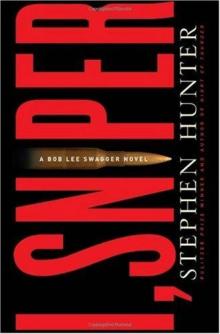 I, Sniper
I, Sniper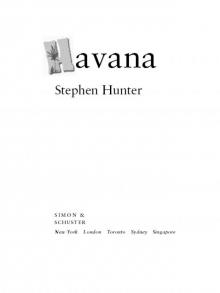 Havana
Havana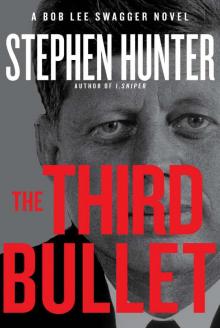 The Third Bullet
The Third Bullet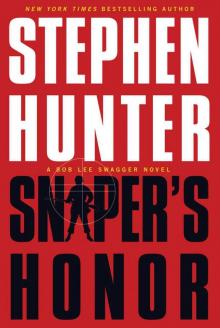 Sniper's Honor: A Bob Lee Swagger Novel
Sniper's Honor: A Bob Lee Swagger Novel Dirty White Boys
Dirty White Boys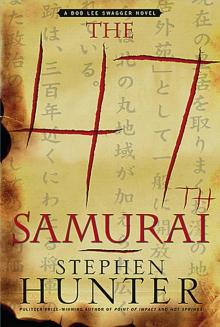 The 47th Samurai
The 47th Samurai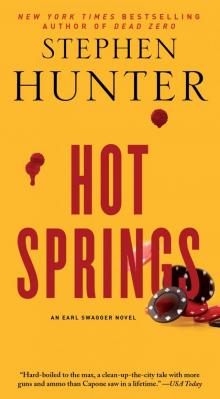 Hot Springs
Hot Springs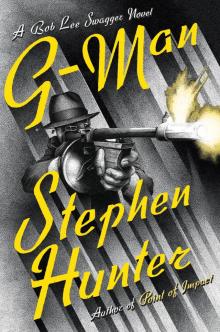 G-Man
G-Man Black Light
Black Light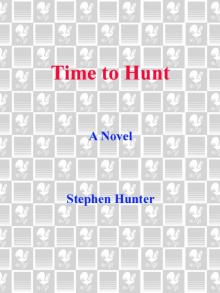 Time to Hunt
Time to Hunt The Day Before Midnight
The Day Before Midnight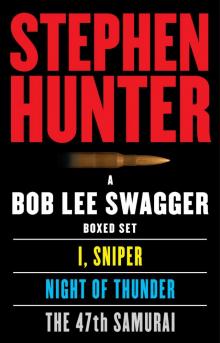 A Bob Lee Swagger Boxed Set
A Bob Lee Swagger Boxed Set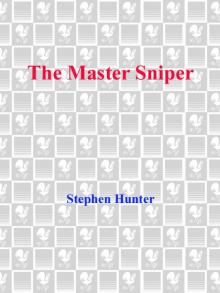 The Master Sniper
The Master Sniper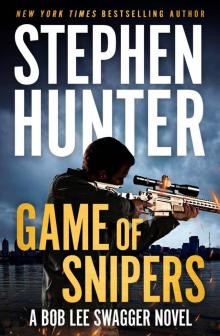 Game of Snipers
Game of Snipers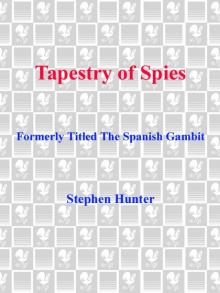 Tapestry of Spies
Tapestry of Spies Citadel
Citadel The Second Saladin
The Second Saladin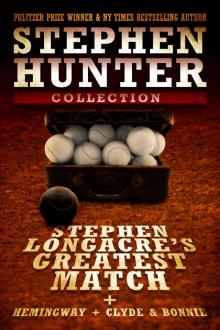 Stephen Longacre's Greatest Match
Stephen Longacre's Greatest Match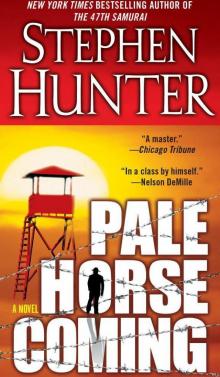 Pale Horse Coming
Pale Horse Coming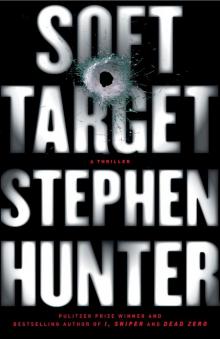 Soft Target
Soft Target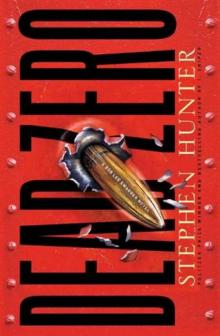 Dead Zero
Dead Zero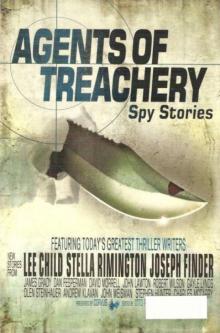 Casey at the Bat
Casey at the Bat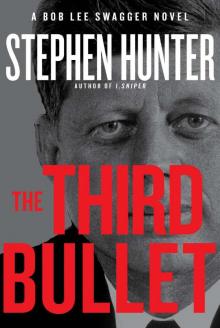 The Third Bullet bls-8
The Third Bullet bls-8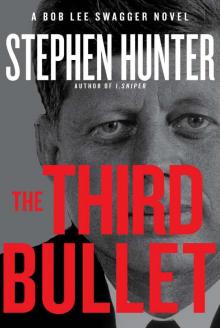 The Third Bullet: A Bob Lee Swagger Novel
The Third Bullet: A Bob Lee Swagger Novel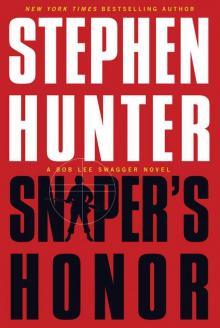 Sniper's Honor
Sniper's Honor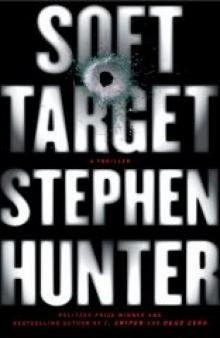 Soft target rc-1
Soft target rc-1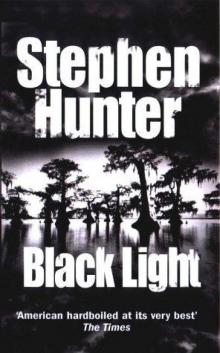 Black Light bls-2
Black Light bls-2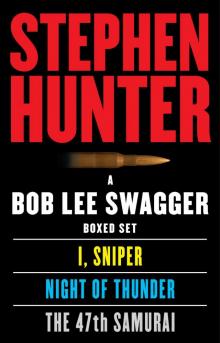 A Bob Lee Swagger eBook Boxed Set: I, Sniper, Night of Thunder, 47th Samurai
A Bob Lee Swagger eBook Boxed Set: I, Sniper, Night of Thunder, 47th Samurai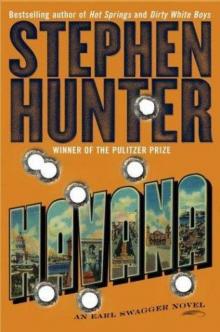 Havana es-3
Havana es-3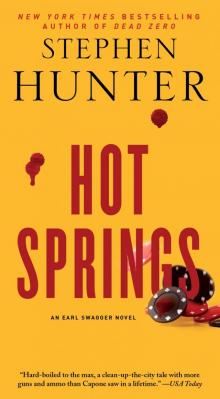 Hot Springs (Earl Swagger)
Hot Springs (Earl Swagger)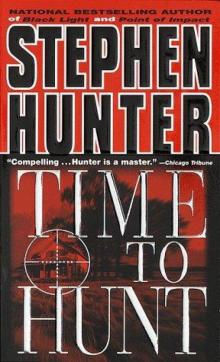 Time to Hunt bls-1
Time to Hunt bls-1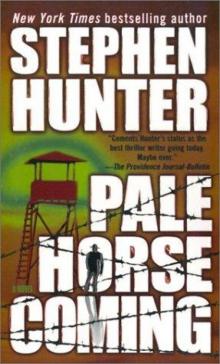 Pale Horse Coming es-2
Pale Horse Coming es-2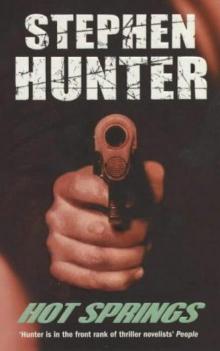 Hot Springs es-1
Hot Springs es-1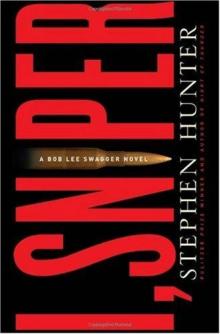 I, Sniper: A Bob Lee Swagger Novel
I, Sniper: A Bob Lee Swagger Novel